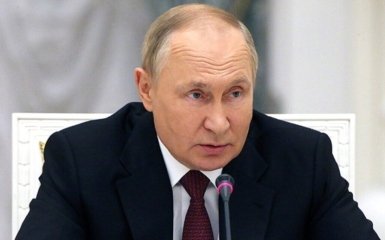Serhiy Plokhii, PhD in history and professor and director of the Ukrainian Research Institute of Harvard University, believes that after Vladimir Putin's death, isolated Russia will experience a very difficult period during which disintegration can become part of its history.
Points of attention
- After Putin's death, a brutal period may follow for an isolated Russia with the possibility of disintegration.
- Changes in the country can be aimed at improving relations with Europe and restoring ties in the global market.
- President of Ukraine Zelenskyy calls Putin dangerous, noting his extraordinary nature and inability to stop.
- Relations between Russia and Ukraine compared to the First World War have more in common with the aggression of Hitler's Germany in Europe.
- After the death of a tyrant or dictator, there is always a period of selection and struggle for power among the heirs, and political changes can be significant.
What will happen to Russia after Putin's death?
It may or may not happen. But war is a crisis, and it is clear that this war cannot continue after Putin, because it is not in the interests of many, including Russian business. There will be changes, there will be some tectonic upheavals. And from this point of view, such countries or such parts of Russia, such as Chechnya, which de facto already function almost as independent, can leave, Russia is Kadyrov's tributary, and not the other way around, he said.
The historian believes that this war is entirely unprofitable for Russia on a large scale; it causes a lot of damage to Russian business and Russian representation in the world.
I do not believe that this generation of Russians will prefer, say, a vacation in Beijing over a trip to Paris. A kind of rollback and a return to rebuilding bridges with Europe will begin, because at their peak in terms of education and other things, the Russian imperial and modern elite focused on Europe, Plokhii said.
According to him, after the death of a de facto tyrant or dictator-type leader, there is always a particular choice and struggle between his heirs.
And none of them will be strong enough to continue a policy that is so harmful to Russia itself... This is a historian's view, we cannot look into tomorrow, we can only make assumptions. This is the most likely scenario from the point of view of the history of Russia in the last 100 years. How there were changes from Lenin to Stalin — how after Stalin's death there was competition between the heirs. This is an opportunity for totalitarian regimes to change course, he added.
Zelenskyy's opinion about Putin
Russian dictator Vladimir Putin is dangerous because he is not mentally ill. In an interview with The Guardian, the President of Ukraine, Volodymyr Zelensky, stated this.
When I say he's sick... He's not crazy, you understand. He is dangerous. And it's much scarier. That is, he will not stop, said Zelenskyy.
The Ukrainian president noted that comparisons of the Russo-Ukrainian war with the First World War, popular in the West, are incorrect. In Zelenskyy's opinion, it would be much more appropriate to compare the Russian invasion of Ukraine with the aggression of Hitler's Germany in Europe.




